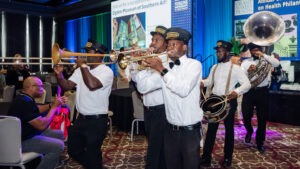The final day of the conference lands on Juneteenth, a federal holiday commemorating the end of slavery in the United States. On this day, 160 years ago, Union soldiers arrived in Galveston, Texas, and shared news about the Emancipation Proclamation. The celebrations that ensued formed the basis for the annual holiday, also known as Emancipation Day and Jubilee Day.
Today, the United States still needs bold action to ensure that the freedoms of all people in the country not only endure but expand. In her opening remarks, Cara James, President and CEO of Grantmakers In Health, reinforced that while our basic freedoms are currently under threat, these setbacks are an opportunity to reimagine our systems with equity at the center.
During Day 2 of the 2025 Annual Conference on Health Philanthropy, attendees across sectors worked together to identify the intersections of their work and co-created solutions for healthier, thriving communities. Sessions spanned a wide range of topics, from exploring business’ role in health equity to strategies for supporting staff in uncertain times.
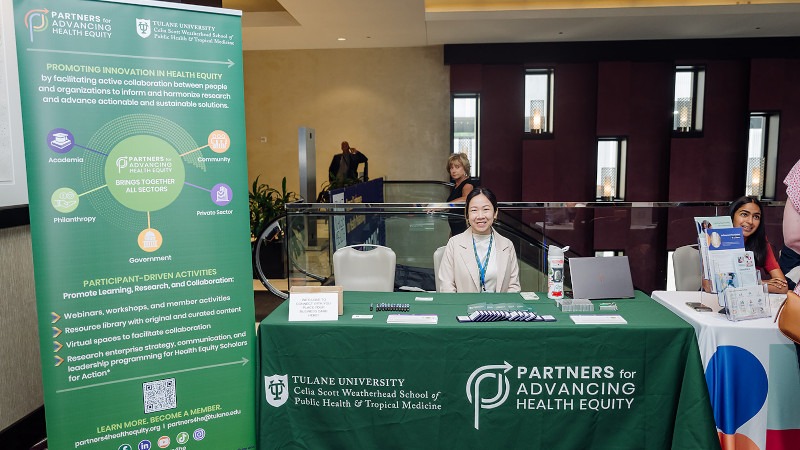
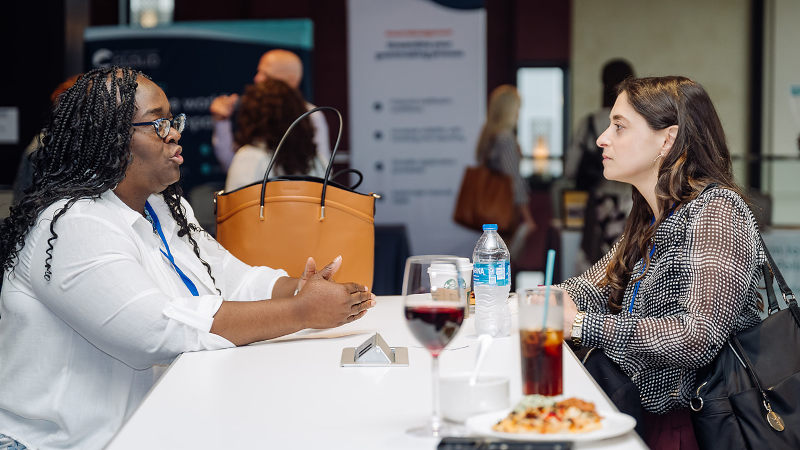
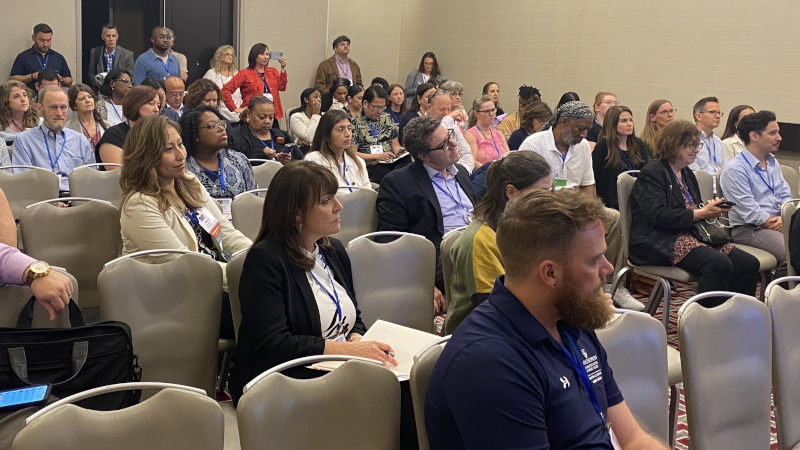
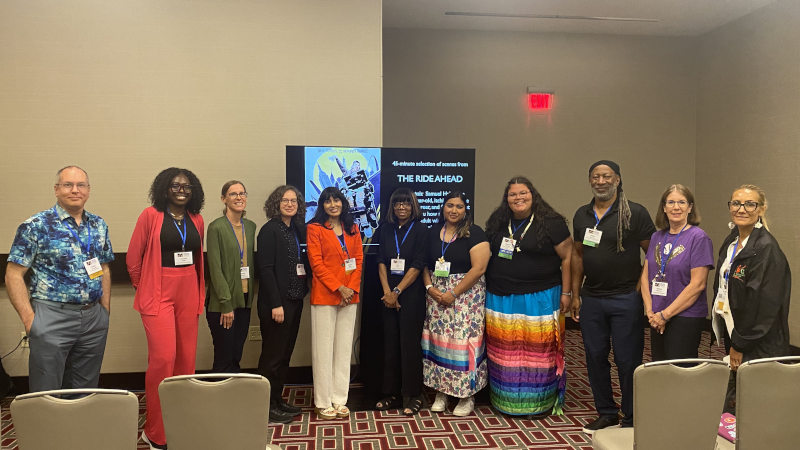
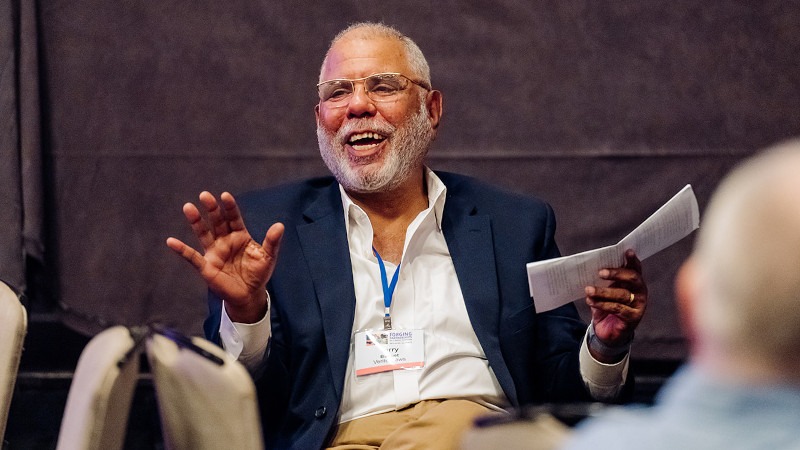
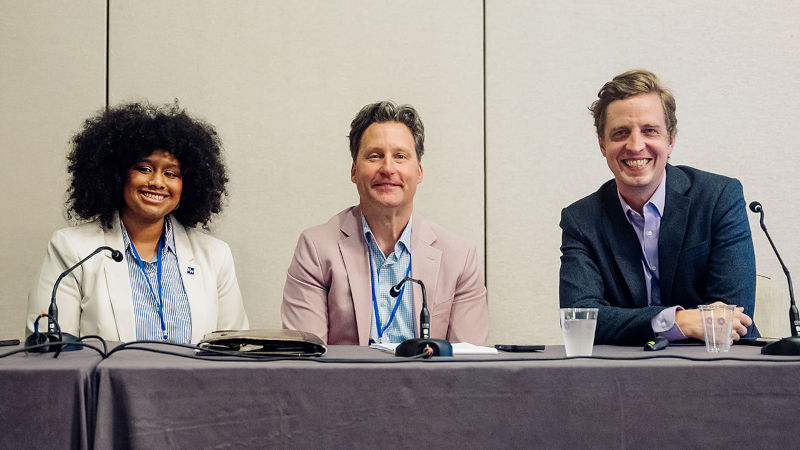
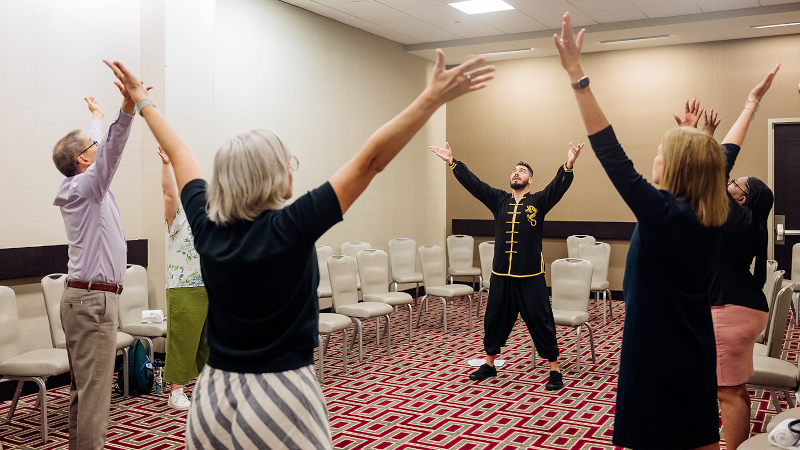
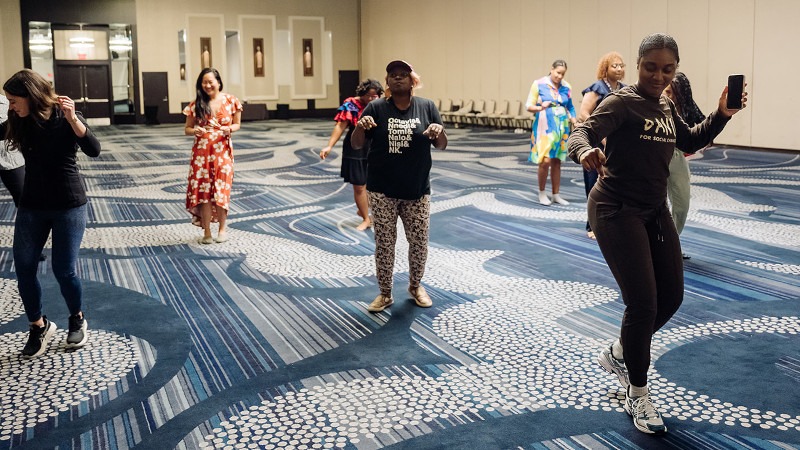
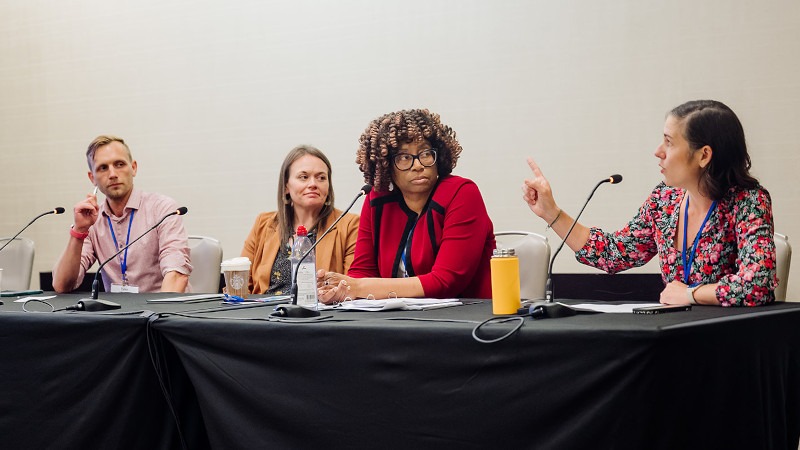
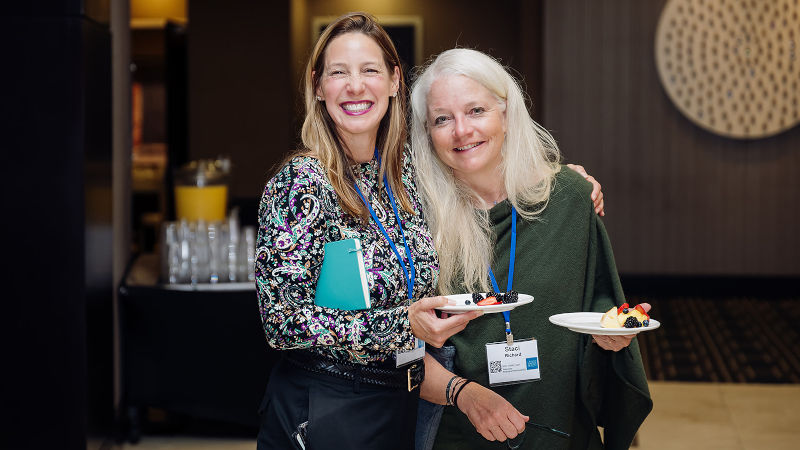
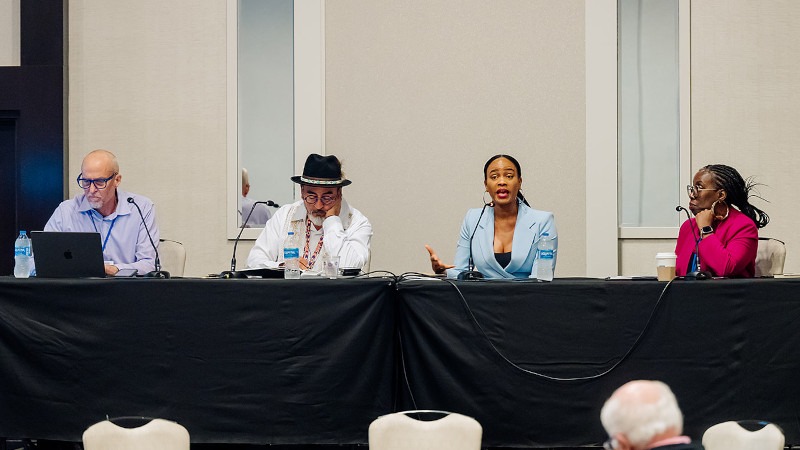
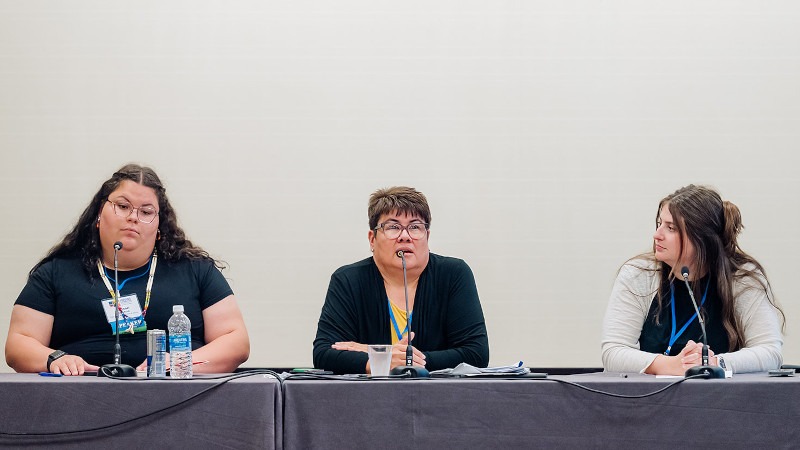
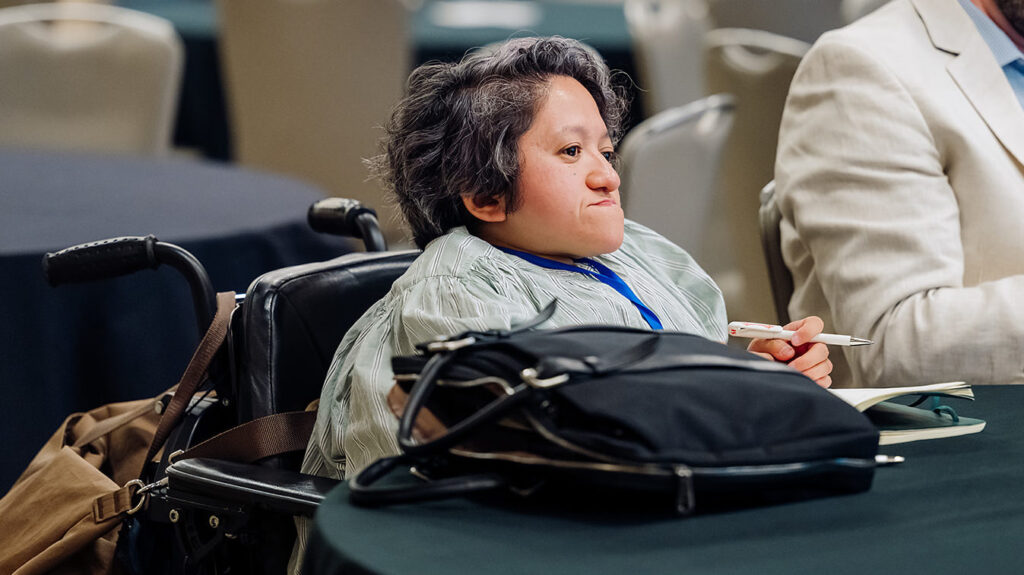
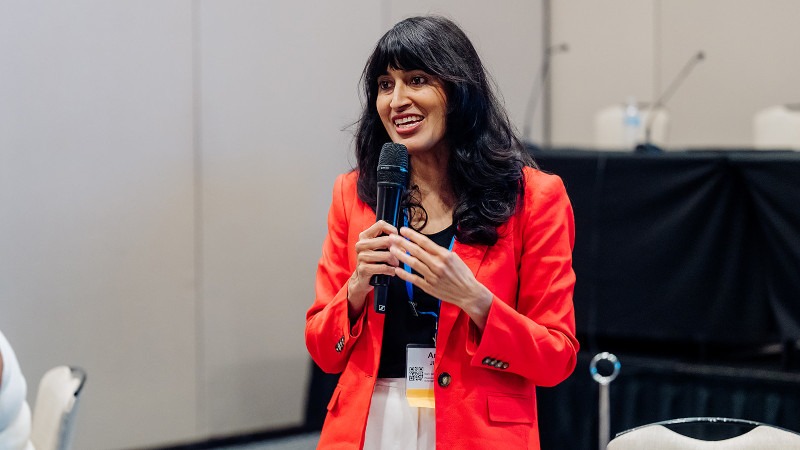
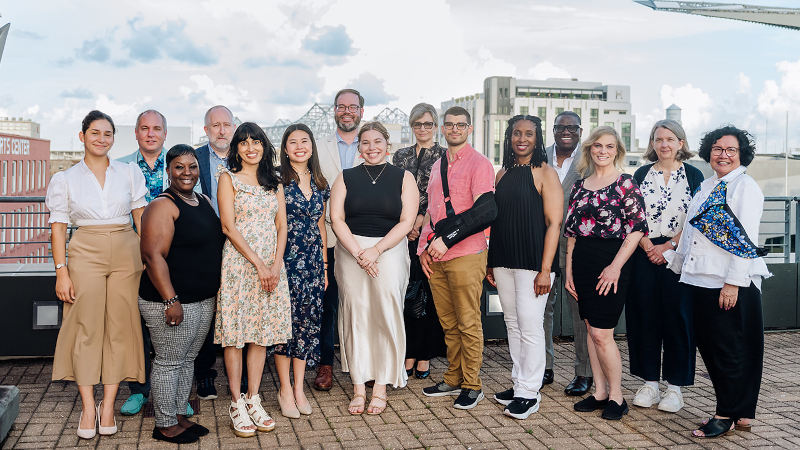
Plenary: Medicaid, Medicare, and the Older Americans Act: 60 Years Later
This year marks three significant milestones in U.S. health care: the 60th anniversaries of Medicare, Medicaid, and the Older Americans Act. This moment comes when programs that should be celebrated for providing necessary access to care are on the verge of being dismantled. Linda Elam, President of Elam Strategies; Kevin Prindiville, Executive Director at Justice in Aging; and Tricia Neuman, Senior VP and Executive Director, Program on Medicare Policy and Sr. Advisor to the President at the Kaiser Family Foundation, joined moderator Rosemary Westwood, Editor and Public Health Reporter at WWNO/WRKF, to unpack the success of these programs, and how current policy discussions could impact their future.
Decades after Medicare and Medicaid were launched, the programs have remained very popular. Medicare is a federal program that serves about 68 million older people and people with disabilities. Medicaid is a federal-state partnership, meaning states can tailor Medicaid programs to their populations’ needs, and it plays a fundamental role in coverage for low-income people. Some people are eligible for both programs, but Medicaid primarily serves families, pregnant people, and children. Panelists asserted that Medicare and Medicaid are the building blocks for the U.S. health care system. The Older Americans Act wraps around Medicare and Medicaid, providing social services that would not typically be covered by insurance.
Medicare and Medicaid launched on the heels of the Civil Rights Act. Both programs opened the doors of hospitals to patients and physicians who had previously been denied access. Medicaid and Medicare are our country’s most significant investments in redistributing wealth and supporting low-income communities. Over the years, Medicaid and Medicare have changed to meet the population’s evolving needs. Medicare originally served people 65+, and now plays an essential role in insuring younger people with disabilities. Medicare expanded to help more people access health care, evidenced by a prescription drug benefit intended to make healthcare more accessible and affordable. Despite these changes, coverage remains insufficient.
The United States has a rapidly aging population: about one in 20 people was over 65 in 1920. By 2060, one in four people will be over 65. The Medicare population is due to increase exponentially, but Medicare does not fill the need for long-term care. As the population shifts, access to care will be delayed. The panelists agreed that having an insurance card is not a health guarantee for any of us.
As the conference unfolds, a bill sits in the Senate that could dramatically slash health care spending, with impacts primarily on Medicaid. The bill proposes one trillion dollars of cuts to the health care system that would result in 16 million Americans losing coverage. Panelists discussed some of the many bill provisions that will impact Medicare and Medicaid. For Medicare, one provision will reduce coverage for low-income beneficiaries by adding red tape to Medicare savings programs. Another provision would restrict coverage for legally residing immigrants, the first time there has been a taking away of benefits or eligibility for people on Medicare.
While the Medicare cuts are unprecedented, the Medicaid changes would be catastrophic. Proposed provisions include Medicaid work requirements, even though most Medicaid beneficiaries work, and imposing more financial penalties on expansion states. When states get less money, they look to optional services to cut, like home and community-based services for older adults and folks with disabilities. These cuts will decrease care for the people who need it most, ultimately costing the U.S. more in the long run. The bill cuts benefits and coverage that Americans rely on every day, deliberately undermining a program to support tax cuts. And these changes will be incredibly expensive to reverse. Congress will need to find money to build back coverage, which could take decades.
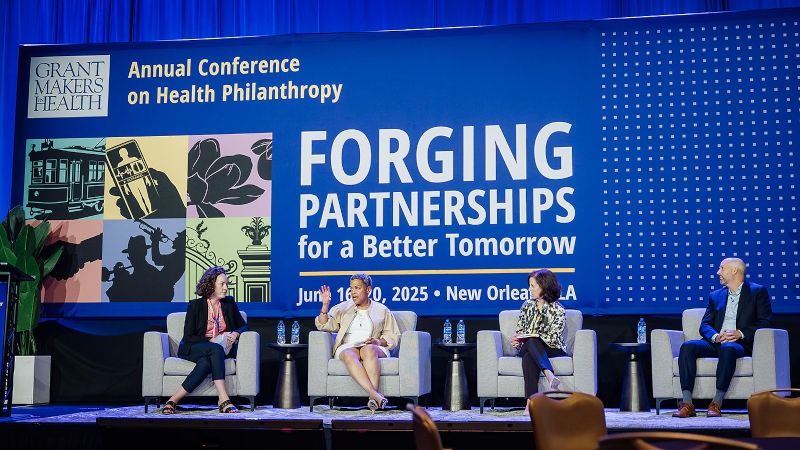
It may feel like a period of destruction, but panelists framed it as a moment to rebuild. Medicaid and Medicare are essential to health in this country, but have never met every need. This is the time to consider what the country truly values and move beyond an eligibility-based and population-based approach. Not only is it imperative to build a long-term care strategy for the country, but it is also critical to dream big. Why can’t this be a country where health care is a human right?
Panelists agreed that funders can dream big together. 60 years ago, Medicare, Medicaid, and the Older Americans Act improved health care in this country. Together, funders can build a new vision for the next 60 years: one where health care is easier to access for a diverse and evolving population.
Race, Disability, and Poverty: Adolescent Health Transition Teetering on a Cliff
Gail Fuller, Chief of External Affairs at the Disability & Philanthropy Forum, opened the panel with the true story of a 22-year-old Black person living with cerebral palsy. Until recently, they had few issues accessing the care they needed. But now, they’re faced with the transition into adult health services: a process that’s confusing, stressful, and has left them without access to care for the last three months.
Panelists and attendees agreed that this is no rare story. But why is transitioning to the adult health system so difficult to navigate? Panelists raised a few key issues:
- Peggy McManus, President of The National Alliance to Advance Adolescent Health, pointed to the complicated transition process, which offers too few avenues for people to access the information and help they need.
- Allysa Ware, PhD, MSW, Executive Director of Family Voices, added that providers’ lack of cultural understanding fuels information barriers.
- Both panelists also pointed to the lack of data. Very little research focuses on transition disparities by race and disability. However, we do know that the disparities are not only significant but preventable.
So, how do funders pave the path forward? The panelists offered several ideas.
- Step out of your silo. Holly Henry, Program Director at Lucile Packard Foundation for Children’s Health, elevated the importance of co-creating solutions with funders whose focus areas differ from yours.
- Center lived experiences. Henry shared that her foundation helps new grant applicants identify people with lived experiences with whom to collaborate. Additionally, the foundation has people with lived experiences on its staff and proposal review committees.
- Invest in research projects and tracking methods for continuity of care. Advocates need data to make the case for a simplified, accessible transition process.
Commit to building a stronger system. Support the work aimed at simplifying the transition process.
Health Equity Undermined: The Implications of HHS Reductions
The HHS reductions in people, programs, and divisions are demoralizing and carry serious implications. But setbacks to health equity are not new. In the face of these challenges, panelists urged attendees to deepen their commitments to building our systems back better, with equity at the forefront.
Funding is critical, but there’s much more that funders can do to advance health equity in their communities. Panelists shared several recommendations:
- Say health equity. Do not retreat from the commitment to a society where people can achieve their best health.
- Use your voice as citizens to urge decision makers at local, state, and federal levels to reduce health disparities.
- Amplify data, research, and analysis for evidence-based decision-making.
- Continue to think broadly about the public health ecosystem. Keep collaborations going with partners. We can achieve more when we do it together.
- Avoid analysis paralysis. Meet the urgency of the moment now. Worry less about perfecting the approach and strategy.
- Encourage civic engagement outside of election cycles.
- Listen to your community. They can tell you exactly what they’ve been doing, and exactly what they need.
- And perhaps most importantly: lean into partnerships. Advancing equity in this moment will require funders of different backgrounds to convene, learn from one another, and co-create solutions.
Bottom Line: The HHS cuts feel dire. But addressing disparities is a long-term project, with inevitable setbacks to come. In times like these, working together to move the work forward is essential.
Terrance Keenan and Andy Hyman Awards Plenary Luncheon
“No matter how hard, we have to keep telling our why, advocating for equity, connecting the dots, and reclaiming the narrative.”
– Elizabeth Ripley, Chief Executive Officer of the Mat-Su Health Foundation and Recipient of the 2025 Terrance Keenan Leadership Award
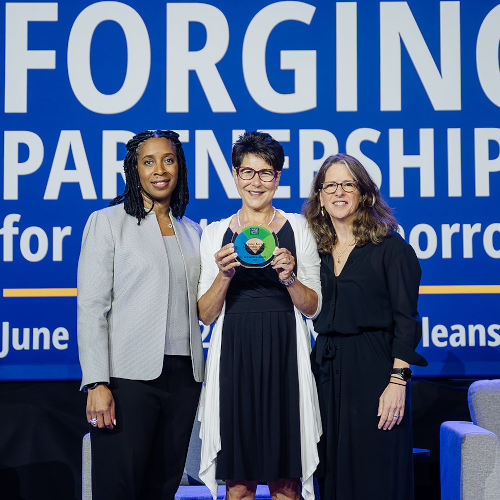
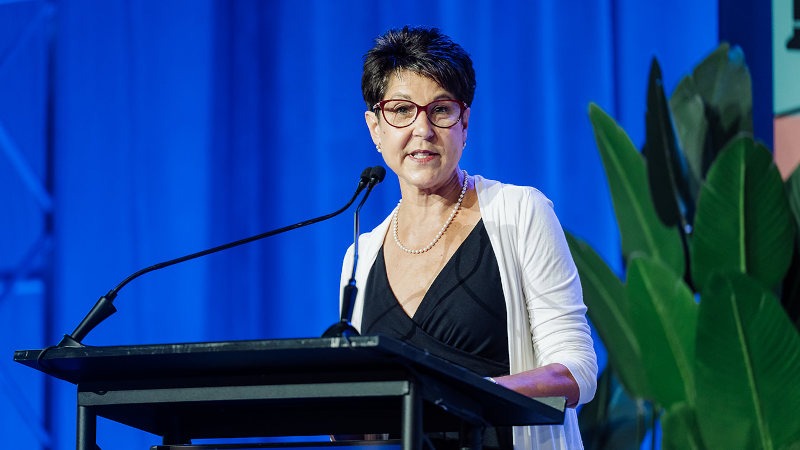
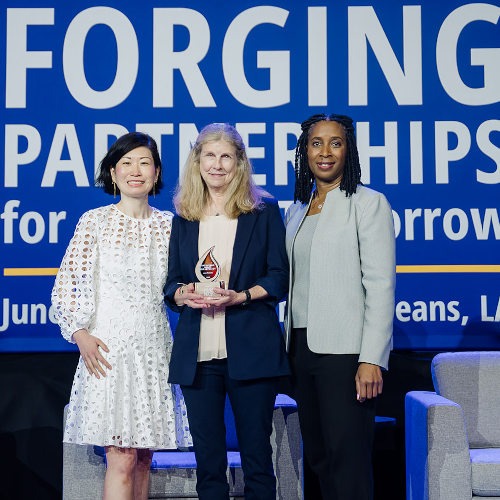
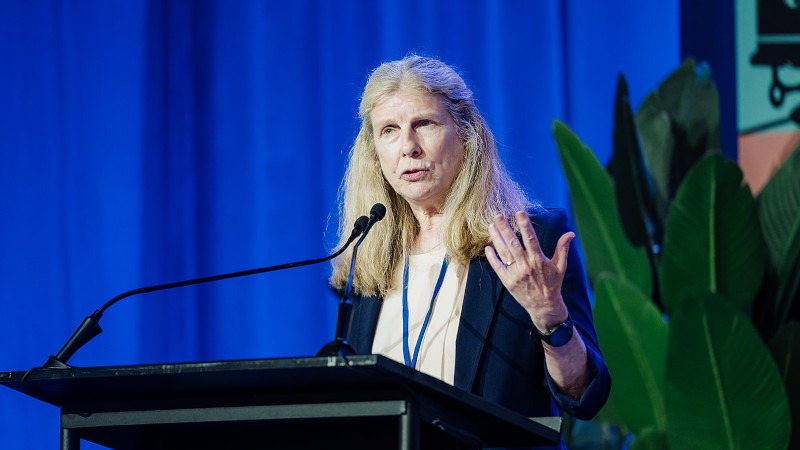
Elizabeth Ripley, Chief Executive Officer of the Mat-Su Health Foundation, was honored with the 2025 Terrance Keenan Leadership Award, which recognizes a grantmaker whose work is distinguished by leadership, innovation, achievement, creativity, and boldness.
In accepting the award, Ripley reflected on several lessons learned as the leader of the Mat-Su Health Foundation, all of which are deeply relevant to the circumstances we face today. She also shared best practices for communicating through division: know your audiences well, and rely on the “why” driving your work.
Ripley closed on a note of hope, sharing, “I’m confident that if we continue investing in inclusive narratives, build social connections, and listen to diverse voices, we can ensure our systems benefit all people and help them have a better tomorrow.”
Jane Perkins, Litigation Director and Senior Advisor to the Executive Director at the National Health Law Program, was honored with the Andy Hyman Award for Advocacy, which recognizes a nonprofit or public sector champion who embodies a commitment to principled action and leadership to advance social change.
Perkins is an advocate’s advocate. Hyman was one of the first funders who Perkins befriended. “Andy just got it and was enthusiastic about our ideas,” Perkins shared. Colleagues who nominated Perkins emphasized her kindness and responsiveness, and her extraordinary stewardship of a body of law that impacts millions of Americans.
Upon accepting the award, Perkins elevated stories from her time with the National Health Law Program that have been essential to fighting for and maintaining secure health access for low-income people. From ensuring states implement the federal requirement to provide coverage for preventive oral health services to bringing a lawsuit against the California State Medicaid Agency to get state coverage for lead tests, Perkins’ work often starts local, but has wider implications. In 2025, many of the issues Perkins has litigated have returned to the national stage. Perkins noted that the work is time-tested, but is also just beginning. With the solid foundation Perkins has set as an advocate’s advocate, there is a clear model for progress in policy and practice despite challenging political environments.
Play as a Catalyst for Social Change
Renata Simril, President and CEO, LA84 Foundation, opened this Quick Take with a question: “What if joy were a prescription?” Despite overwhelming evidence that play can increase joy and improve health outcomes, youth sports programs and organizations remain underfunded and overlooked. LA84 considers sport as a catalyst for social change, and has helped build a shared narrative around youth sports and a national movement of 20 coalitions and 400 organizations, and unlocked $15M in public investment in sports in California.
As part of the growing movement around sports and play, Haviland Rummel, Executive Director of the Susan Crown Exchange, recognized that sports coaches are essential in supporting young people. Still, only one-third of coaches are trained in social and emotional learning and trauma-informed practices. Susan Crown Exchange established a youth sports program area, which resulted in the Million Coaches Challenge, a cohort of 18 organizations committed to training one million coaches by 2025 and building a future where all youth are equipped with the skills they need to thrive.
Throughout the session, Simril and Rummel challenged attendees to think about sport and play differently. While play is about physical and mental health, it is also essential to health equity, ensuring young people develop healthy habits. By funding play and sports, health funders can directly address social determinants of health.
With so many sporting events coming to the U.S. in the next few years, there is a massive opportunity to shine a light on the grassroots organizations showing up in their communities every day to build a better world through sports and play. Simril and Rummel shared that the legacy we leave will not be measured in medals. It will be measured by whether every kid in every zip code has joy and play in their life.
Equitable Systems Change that Centers and Honors Home Care Workers
As Molly Belsky, Communications Associate at the Rippel Foundation put it, if you support the providers of care, you also support those receiving care and their larger communities. This belief is foundational to the Healing Home Care initiative, a partnership by the Rippel Foundation and the U.S. Federation of Worker Cooperatives and funded by the Robert Wood Johnson Foundation. Based in Philadelphia, this pilot program amplifies the experiences and perspectives of home care workers, creating a brighter, sustainable future for this essential field.
Terrell Cannon, Director of Training at Home Care Associates, is a fellow in the Healing Home Care initiative and was clear about the challenges home care workers face: low wages, minimal benefits, high risk of injury, and general stigma surrounding the field. Yet, home care workers are essential to advancing community well-being. Cannon emphasized the critical need to strengthen the field for generations of home care workers to come—and that won’t happen if we stick to the status quo.
Through the Healing Home Care initiative, Cannon has increased opportunities to connect with audiences who have the power to influence outcomes for home care workers, including health care professionals in other fields, government representatives, and funders. Helping influential audiences understand the direct link between supporting home care workers and advancing quality home care for those who need it positions the home care field for the future.
Bottom Line: Projects like the Healing Home Care initiative shine a bright light on the power and potential of often-overlooked health fields, and these projects are at their best when they’re directly informed and led by the people they seek to impact.
Breaking Barriers in Health Care Equity for BIPOC and LGBTQ Communities
Hez Norton, Senior Portfolio and Partnerships Director at the Laughing Gull Foundation, launched today’s session with some sobering statistics: just this year, there have been 937 anti-LGBTQ bills across 49 states, and 21% of those bills focused on health care. During the session, the Supreme Court ruled to allow the ban on health care for transgender and gender expansive youth. Every moment, the new administration is dismantling services that directly impact LGBTQ health, from Medicaid access to health research related to LGBTQ people.
And these impacts on LGBTQ people are particularly felt in the South, the site of this year’s conference. In 2022, $258M grant dollars went to LGBTQ communities, or about 25 cents for every $100 awarded by U.S. foundations. Notably, 36% of LGBTQ people live in the South, but the South only receives 11% of those already limited funds. Shaena Johnson, Out in the South Project Director at Funders for LGBTQ Issues emphasized that the South, particularly Louisiana, is the guinea pig for many of the laws and policies that impact LGBTQ health and are now expanding across the country. The South is the battleground for these policies, and also the least funded. Thus, much of the work to support LGBTQ communities and fight back against harmful policies is done out of pocket.
Despite the lack of funding opportunities in Louisiana, two New Orleans organizations continue to address the urgent health care barriers faced by LGBT individuals, particularly within BIPOC communities. Nikki Alexander-Tumblin, Executive Director and Founder of New Orleans Black Pride shared that she started the organization because while NOLA is a queer city, it has not always been hospitable to Black queer people. Alexander-Tumblin launched events for Black queer people in 2020 with her own money, and since then New Orleans Black Pride events have grown, doubling in size from 2024 to 2025. The need is there, but the funding is not.
Morris Singletary, Founder and CEO, Pozitive2Positive similarly started his organization with lived experience but no funding. When a social media video about his journey with HIV started to attract attention, Singletary saw a need for resources around HIV prevention, treatment, and care. Today, Singletary meets people where they are in Atlanta and New Orleans, after work hours, on the weekends, and in person. He produces events, leads collaborations, and has created initiatives like Conversations with Unc and Friends with Benefits.
Yet, despite the success of these organizations in meeting the needs of the LGBTQ BIPOC community, they are still not getting funded. Both Singletary and Alexander-Tumblin both work full time jobs, in addition to running their organizations unpaid. Small organizations must jump through hoops to receive their first dollars when they seek funding. The session closed with both panelists and attendees acknowledging that funders must do more to ensure LGBTQ issues are at the forefront of funding conversations and conferences like the GIH Annual Conference on Health Philanthropy. As Singletary shared, “The way we take care of each other is by holding each other accountable.”
Data-Driven Solutions for Gun Violence Prevention
Firearms are the leading cause of death for children and teens in the United States. And yet, gun violence prevention is too often missing from conversations about health funding and organizational strategy. In this breakout session, panelists shared data-driven stories to help debunk oversimplified narratives about firearm violence. The panel also offered several data-backed ways for funders to invest in safer communities, and sourced additional ideas and perspectives from attendees.
Deirdre Johnson Burel, Senior Program Officer at the W.K. Kellogg Foundation; Refujio “Cuco” Rodriguez, Chief Strategist and Equity Offer of the Hope and Heal Fund; Brian Malte, Executive Director of the Hope and Heal Fund, and others present brought a wide array of personal and professional experiences with gun violence to the panel. Whether acting as a funder, social worker, family member, or friend, each panelist has experienced the profound lack of resources required to proactively address firearm violence. There are many factors fueling this gap, but there are also many solutions that funders can advance, including:
- Incorporate gun violence prevention into the foundation of your funding strategy. Gun violence prevention requires careful planning. Reaction alone won’t yield safer communities.
- Invest in data collection. Gun violence prevention advocates need accurate data to dictate interventions, identify root cases, and develop true narratives about communities.
- Center lived experiences. There is no one-size-fits-every-community approach to gun violence prevention. Localizing your efforts and centering those who live there leads to stronger, community-tailored solutions.
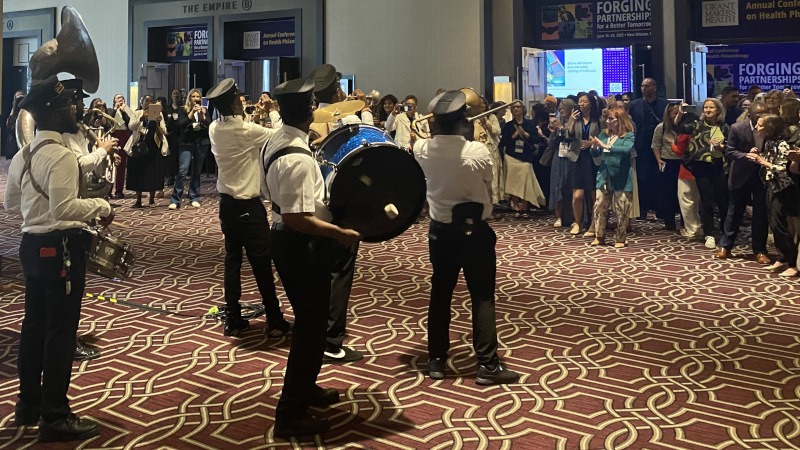
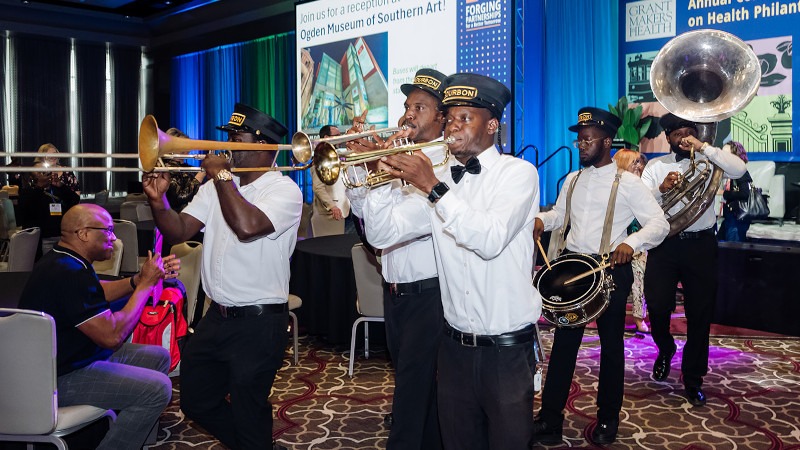
Reception
Thomas A. LaVeist, PhD, Dean and Professor at the Tulane University Celia Scott Weatherhead School of Public Health & Tropical Medicine, ended the day with a message of hope. Dr. LaVeist reflected on the deep sense of hope felt through the streets of New Orleans, and called on attendees to bring that same energy back to their communities and their work in health philanthropy.
In true NOLA style, Dr. LaVeist’s speech concluded with a few tunes from a lively jazz band. Attendees were encouraged to follow the music to a lively reception across all five floors of the Ogden Museum of Southern Art, which holds the largest and most comprehensive collection of art from the American South.. Attendees enjoyed live jazz music, art exhibitions, classic NOLA dishes, and vibrant conversation.
A philanthropic-academic partnership was formed to address the unique and persistent oral health challenges experienced by rural children in North and South Carolina. Access to care and public policy improvements have been achieved. This initiative has informed additional school-based program investments. A replication blueprint for other states is available.
NOLA Facts: New Orleans is also known as the “Crescent City” because the city grew along the curve of the Mississippi River.
Follow all the conference activities on GIH socials and the official GIH Annual Conference app.
Facebook | LinkedIn | Instagram | Conference App

